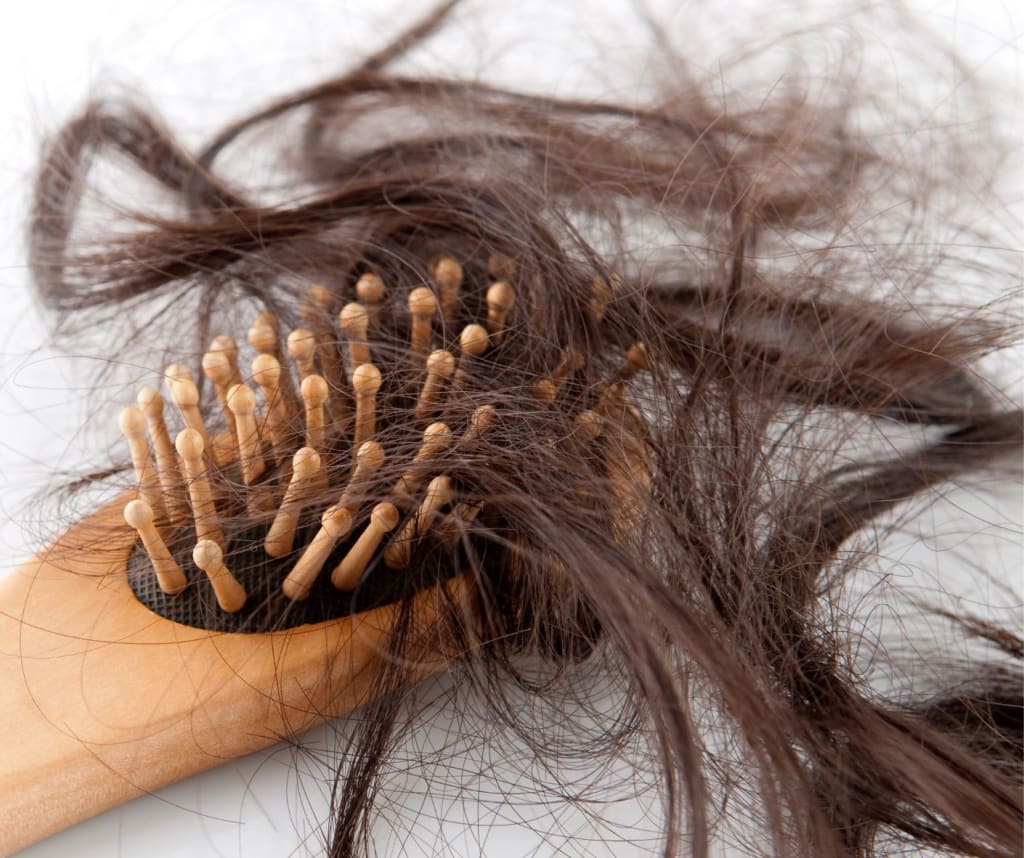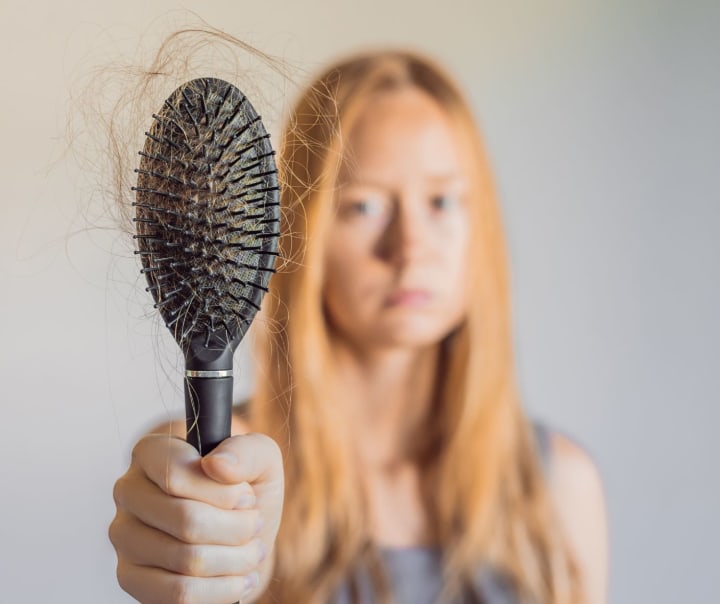Five Top Causes of Hair Thinning in Women
and how you can prevent it.

Many women are affected by hair thinning. In fact, it is estimated that it happens to over half of women. You may start to notice that your hair is thinner, though you may notice that you have a few bald spots or a widening hair part.
Here are the top causes of hair thinning.
Age. As women age, they are more likely to have thinning hair. This is due to the cells dying off faster than their body is able to replace them. Women also produce less oil in their scalp as they age, which means that their hair is often weak and brittle (and more likely to break off).
Genetics. Genetics is another factor in thinning hair. It is often called female pattern hair loss. It can start at any age and gets worse as you age. Females usually notice that their hair part widens. Then, they may notice the loss of hair.
Hormones. Women with polycystic ovary syndrome (PCOS) and other hormonal diseases often have thinner hair. You may also notice a change in your hair when you are pregnant, have a child, and go through menopause. If you have a condition called hypothyroidism, it can also affect your hair.
Stress. Many women deal with stress on a regular basis. However, there are times when it can cause your hair to fall out. This is especially common if you are going through a rough patch. You may have lost a loved one or are going through a medical problem. When this happens, you may see hair on your pillow or hair in the drain after you wash it.
Nutritional deficiencies. Similar to stress, certain nutritional deficiencies can cause hair loss. You may be low in iron, vitamin D, or even zinc. All of this could lead to a thinner head of hair.
How can you prevent your hair from thinning?
There are many things that you can do to prevent hair thinning, though you can't do anything about your age or genetics.
You may want to talk to a doctor about the condition. Your doctor will be able to run some tests to make sure that your hormones are balanced, and you aren't deficient in any vitamins.
Take extra vitamins. A good multivitamin should help with hair loss, though your doctor may find out that you need to have extra vitamins that you can't get from a good multivitamin. You may be lacking in A, B, C, D, E, zinc, and even iron. All of these can affect the growth of your hair. Some doctors will also prescribe biotin forte with zinc.
There are many different multivitamins available for women through Amazon. You may want to check this one out (or look for something similar). Please note, that this is an affiliate link where I will receive compensation if you buy the product, without any extra cost to you.
Focus on eating plenty of fruit, vegetables, and protein. All of these are essential for you to have healthy hair.
Take care of your hair. You should wash your hair (and scalp) regularly. You should avoid bleaching and dying it. Heating tools, such as curling irons, can also damage your hair. Certain hairstyles, such as ponytails and braids, can also damage your hair.

Though the two most common reasons for thinning hair are age and genetics (and you can't do anything about that), there are many other reasons that your hair is falling out. Your hormones may be all over the place, due to pregnancy or menopause. You may not be eating a nutritionally balanced diet. Stress can also be a big factor in hair loss.
You can't do anything about your age and genetics, but you can take care of yourself. Make sure that you talk to a doctor to make sure that you don't need to take any extra vitamins. You also need to eat healthy and be careful with your hair. If you are losing hair, you shouldn't be bleaching or dying it regularly.
***
Previously published on Medium.
About the Creator
Shelley Wenger
Small town country girl in southern Pennsylvania. Raising two boys on a small farm filled with horses, goats, chickens, rabbits, ducks, dogs, and a cat. Certified veterinary technician and writer at Virtually Shelley.






Comments
There are no comments for this story
Be the first to respond and start the conversation.